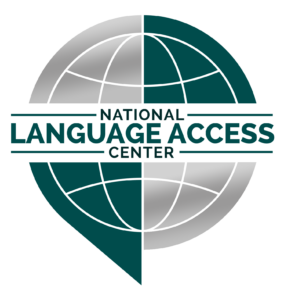Milwaukee’s Language Access Challenges: Are We Meeting the Needs of Our LEP Residents?
Milwaukee’s Language Access Challenges: Are We Meeting the Needs of Our LEP Residents?
Milwaukee, a vibrant city known for its diverse population, faces a critical challenge: ensuring equitable access to vital services for its Limited English Proficient (LEP) residents. While the city has made strides in language access, gaps remain, particularly in healthcare, the courts, and public services. As someone deeply involved in Milwaukee’s language access landscape for over two decades, I’ve witnessed both progress and persistent challenges.
Healthcare: A Critical Need for Clear Communication
In healthcare settings, where clear communication is paramount, language barriers can have serious consequences. LEP individuals may struggle to understand diagnoses, treatment plans, and medication instructions, leading to miscommunication, medical errors, and poorer health outcomes. While many healthcare providers in Milwaukee offer some form of language assistance, such as interpreters or translated materials, access remains inconsistent.
Challenges in healthcare language access:
Shortage of qualified interpreters: Finding qualified interpreters, especially for less common languages, can be challenging. This shortage is exacerbated by a lack of competitive pay and benefits for interpreters, making it difficult to attract and retain qualified professionals.
Lack of awareness: Some LEP individuals may not be aware of their right to language assistance or how to request it.
Cost barriers: Smaller clinics or healthcare providers may have limited resources to invest in language services.
Courts: Ensuring Equal Access to Justice
The legal system, with its complex terminology and procedures, can be particularly daunting for LEP individuals. Without adequate language access, they may struggle to understand their rights, communicate with attorneys, and participate meaningfully in legal proceedings. While Milwaukee County has a dedicated interpreter coordinator for court proceedings, challenges persist in ensuring access for all LEP individuals.
Challenges in court language access:
Timely access to interpreters: Scheduling interpreters for court hearings and other legal proceedings can be challenging, leading to delays and potential disruptions.
Quality of interpretation: Ensuring the accuracy and cultural appropriateness of interpretation is crucial for fair and just legal outcomes.
Language access in all court-related interactions: Language assistance should extend beyond courtroom proceedings to include interactions with court staff, probation officers, and other legal professionals.
Public Services: Navigating Bureaucracy
Accessing public services, such as housing assistance, social services, and educational programs, can be complex and confusing, even for English speakers. For LEP individuals, language barriers can create additional hurdles, potentially leading to exclusion and missed opportunities. While Milwaukee offers some translated materials and multilingual staff in certain public service agencies, more needs to be done to ensure equitable access.
Challenges in public service language access:
Limited translated materials: Many vital documents and forms may not be available in languages other than English.
Inconsistent language support: The availability of interpreters or bilingual staff may vary across different agencies and departments.
Outreach and awareness: LEP communities may not be aware of the language assistance services available to them.
Moving Forward: Collaborative Solutions
Addressing Milwaukee’s language access challenges requires a collaborative effort involving government agencies, healthcare providers, community organizations, and language professionals. Key strategies include:
Investing in interpreter and translator development: Expanding the pool of qualified interpreters and translators, particularly for less common languages, is crucial. This includes advocating for better pay and benefits to attract and retain skilled professionals.
Increasing awareness and outreach: Educating LEP communities about their right to language assistance and how to access it is essential.
Utilizing technology: Leveraging technology, such as remote interpreting platforms and translation software, can enhance language access and make it more cost-effective.
Developing culturally competent language access plans: Organizations should create comprehensive language access plans that are tailored to the specific needs of their LEP clients and incorporate cultural sensitivity.
As someone who has witnessed the evolution of language access in Milwaukee firsthand, I’m optimistic about the future. By working together and embracing innovative solutions, we can create a more inclusive and equitable city where language is no longer a barrier to accessing essential services and opportunities.






